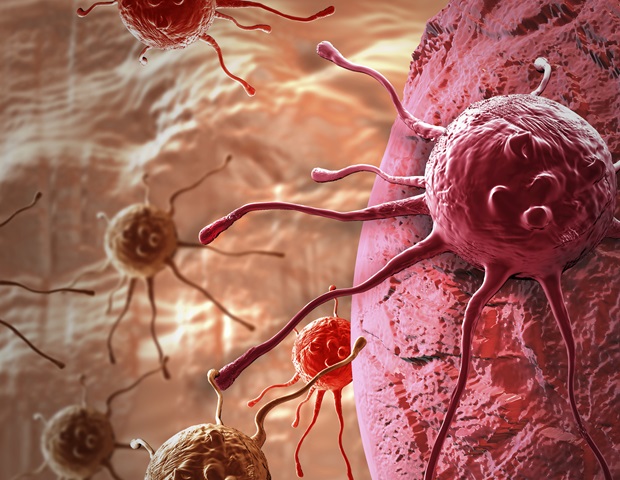In most cancers sufferers with neutropenic fever, delaying antibiotic therapy previous 60 minutes from the time of fever detection doesn’t scale back the short-term probability of survival, in line with a research within the American Journal of Medical High quality. The journal is printed within the Lippincott portfolio by Wolters Kluwer.
Neutropenia; low ranges of white blood cells known as neutrophils, which struggle an infection; develops in additional than 80% of sufferers who obtain chemotherapy for a blood most cancers. It happens as a result of chemotherapy destroys neutrophils together with tumor cells.
A fever in a affected person with neutropenia is taken into account a medical emergency, in line with Adam Binder, MD, of Thomas Jefferson College Hospital in Philadelphia, and colleagues. The fever indicators a extreme lower in neutrophils and due to this fact a compromised skill of the immune system to beat back infections. Neutropenic fever is outlined as a temperature of no less than 101°, or a sustained temperature of no less than 100.4° for an hour or extra.
The Infectious Illness Society of America and the American Society of Medical Oncology have each printed tips for treating outpatients who’ve neutropenic fever. Each organizations name for administering an intravenous antibiotic inside 60 minutes after the fever is detected. The advice about antibiotics can also be usually utilized to the therapy of hospital inpatients, however there is no clear proof that is applicable.
Evaluating inpatients who did or didn’t obtain antibiotics through the really helpful therapy window
dr Binder and his colleagues regarded again at information on 187 sufferers at their hospital who had developed neutropenic fever. Their principal objective was to see whether or not delays in antibiotic therapy affected short-term survival.
Solely 14% of sufferers acquired antibiotics inside 60 minutes of creating neutropenic fever. Their survival charge 6 months later wasn’t considerably higher than the survival charge of sufferers who acquired antibiotics later than really helpful.
Additional evaluation recognized a number of components that had a statistically important affiliation with the danger of loss of life:
- Sufferers with insurance coverage had a 72% decrease danger of loss of life than these with out insurance coverage
- Sufferers with no less than one different main medical situation had a 2.7 instances better danger of loss of life than these with blood most cancers alone
- Sufferers who had been handled with antibiotics inside 40 minutes truly had a 5.7 better danger of loss of life than those that did not obtain antibiotics so rapidly
A potential rationalization for the final discovering, the researchers say, is that sufferers who acquired antibiotics inside 40 minutes “had different signs that yielded a regarding medical image, thus resulting in a timelier administration of antibiotics, however finally a worse medical end result.”
Tips for therapy of outpatients could not apply to hospitalized sufferers
Even a delay of greater than 4 hours wasn’t lengthy sufficient to have an effect on survival, Dr. Binder and his colleagues decided. That result’s in keeping with data from earlier research of inpatients, they are saying.
The authors imagine current therapy tips are applicable for sufferers with neutropenic fever who’re handled in a doctor’s workplace or an emergency division, however different components should be thought-about for sufferers who’ve been admitted to a hospital. “In contrast to neutropenic fever sufferers presenting to the emergency division, the place true time to antibiotic administration could usually be many hours and even days earlier than arrival, a number of hours lengthy [delay] within the hospital is probably not sufficiently lengthy sufficient to trigger important affected person hurt.”
sources:
Journal reference:
Villars, J., et al. (2022) Delay in Time to Antibiotics for De Novo Inpatient Neutropenic Fever Could Not Influence Total Survival for Sufferers With a Most cancers Prognosis. American Journal of Medical High quality. doi.org/10.1097/JMQ.0000000000000093.

